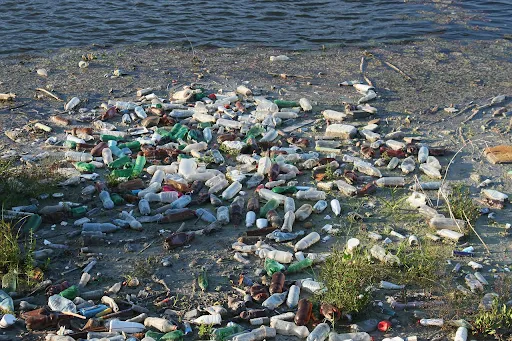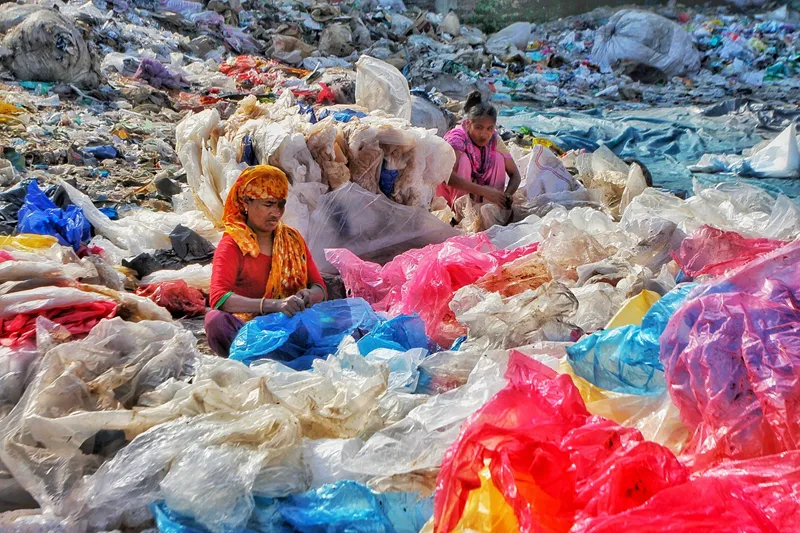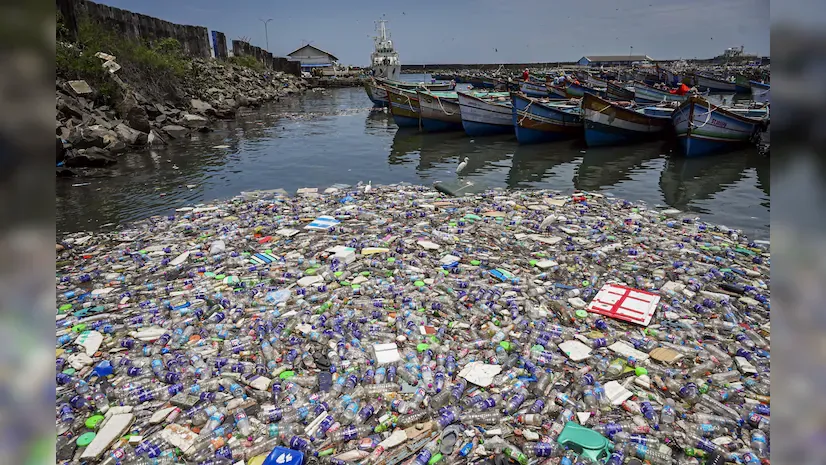India is responsible for nearly a fifth of global plastic pollution, according to a recent study published in the journal Nature. The country burns approximately 5.8 million tonnes (mt) of plastic annually, releasing an additional 3.5 mt into the environment as debris. In total, India contributes 9.3 mt of plastic waste each year, surpassing countries like Nigeria (3.5 mt), Indonesia (3.4 mt), and China (2.8 mt).

Unmanaged Waste Problem
The study, led by University of Leeds researchers, revealed that the world produces 251 mt of plastic waste annually, enough to fill around 200,000 Olympic-sized swimming pools. Of this waste, approximately 52.1 mt is unmanaged and released into the environment. The term “unmanaged” refers to plastic that is either openly burned, releasing toxic gases, or left unburned as debris, polluting land, water, and air. About 43% of unmanaged waste, or 22.2 mt, is unburned plastic debris, while 29.9 mt is burned in uncontrolled fires, leading to severe environmental and health risks.
Global Divide in Plastic Pollution
The study also identified a distinct Global North-South divide in plastic pollution. Southern Asia, Sub-Saharan Africa, and Southeastern Asia are the highest contributors to plastic waste emissions. About 69% of the world’s plastic pollution comes from 20 nations, all of which are low to middle-income countries. Despite having higher plastic waste generation rates, no high-income country (HIC) ranks among the top 90 polluters due to their more efficient waste management systems.

Open burning is the primary method of plastic disposal in the Global South, contrasting with the Global North, where unmanaged debris is the main problem. The lack of proper waste management infrastructure is cited as a significant reason for the growing pollution in lower-income countries.
International Treaty and Debate
This research comes as negotiations for the first legally binding international treaty on plastic pollution are underway. The treaty, expected to be finalised by 2024, is seen by some as the most crucial environmental accord since the 2015 Paris Agreement on climate change. However, there is disagreement on its scope, with fossil-fuel-producing countries pushing for improved waste management, while the European Union and African nations advocate for reducing plastic production, particularly single-use plastics.

Critics of the study argue that it could shift focus away from the root cause of the problem—plastic production—and instead frame plastic pollution as a waste management issue. Neil Tangri of the Global Alliance for Incinerator Alternatives (GAIA) warns that the study risks oversimplifying the issue by promoting better waste management while neglecting the importance of curbing plastic production.
However, plastics industry groups have endorsed the findings, with the International Council of Chemical Associations (ICCA) highlighting the study’s emphasis on uncollected and unmanaged plastic waste as the leading contributor to pollution.
As global stakeholders debate the best path forward, this study serves as a reminder of the urgent need for action in addressing plastic pollution on a global scale.
